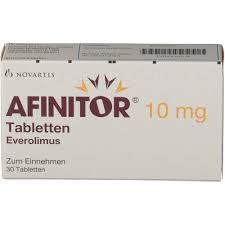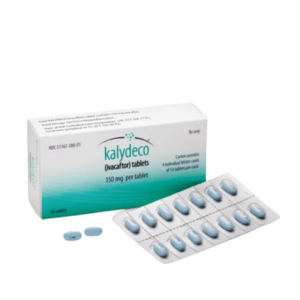Condition : New
0
From UAE
To United States
in 5-10 days
Description
Isradipine is a medication that belongs to the class of calcium channel blockers. It is used to treat high blood pressure, also known as hypertension, by relaxing the blood vessels and reducing the workload of the heart. This article will provide an overview of isradipine, its uses, side effects, interactions, and precautions.
What is Isradipine?
Isradipine is a generic name for a drug that is sold under the brand names Dynacirc and Prescal. It was patented in 1978 and approved for medical use in 1989 . It is available as oral capsules in two strengths: 2.5 mg and 5 mg. Isradipine belongs to the dihydropyridine subclass of calcium channel blockers, which are drugs that block the entry of calcium ions into the cells of the heart and blood vessels. Calcium ions play a key role in regulating the contraction and relaxation of the smooth muscle cells that line the blood vessels. By blocking calcium channels, isradipine prevents excessive contraction of the blood vessels and lowers the blood pressure .What is Isradipine Used For?
Isradipine is mainly used to treat hypertension, which is a condition where the blood pressure is abnormally high. Hypertension can damage the organs of the body, such as the brain, heart, kidneys, and eyes, and increase the risk of stroke, heart attack, heart failure, kidney failure, and vision loss. Therefore, lowering the blood pressure can prevent or delay these complications . Isradipine can be used alone or in combination with other antihypertensive drugs, such as diuretics (water pills), beta-blockers, or angiotensin-converting enzyme (ACE) inhibitors. The dosage and frequency of isradipine depend on the severity of hypertension and the response to treatment. The usual starting dose is 2.5 mg twice a day, which can be increased up to 10 mg twice a day if needed . Isradipine may also be used for other purposes that are not listed in this article, such as preventing migraine headaches or treating Raynaud’s phenomenon (a disorder that causes reduced blood flow to the fingers and toes). However, these uses are not approved by the Food and Drug Administration (FDA) and should be discussed with a doctor before taking isradipine .What are the Side Effects of Isradipine?
Like any medication, isradipine may cause some side effects in some people. The most common side effects of isradipine are:- Flushing (warmth, redness, or tingling sensation in the face or chest)
- Headache
- Dizziness
- Swelling of the ankles or feet (edema)
- Rapid or irregular heartbeat (palpitations)
- Upset stomach or nausea
- Allergic reaction (hives, rash, itching, difficulty breathing, swelling of the face, lips, tongue, or throat)
- Lightheadedness or fainting
- Chest pain or tightness
- Shortness of breath or wheezing
- Sudden weight gain or fluid retention
- Signs of liver problems (yellowing of the skin or eyes, dark urine, clay-colored stools, loss of appetite)
What are the Interactions of Isradipine?
Isradipine may interact with other medications, supplements, or herbs that affect blood pressure or heart function. These interactions may increase or decrease the effectiveness of isradipine or the other drugs, or cause unwanted side effects. Therefore, it is important to inform a doctor or pharmacist about all the products that are being taken before starting isradipine . Some of the drugs that may interact with isradipine include:- Cimetidine (Tagamet), a drug used to treat ulcers and acid reflux. It may increase the blood levels of isradipine and increase the risk of side effects.
- Rifampin (Rifadin, Rimactane), a drug used to treat tuberculosis and other infections. It may decrease the blood levels of isradipine and reduce its effectiveness.
- Fentanyl (Duragesic), a powerful opioid painkiller. It may lower the blood pressure too much when taken with isradipine and cause severe drowsiness, confusion, or breathing problems.
- Other calcium channel blockers, such as amlodipine (Norvasc), nifedipine (Procardia), or verapamil (Calan). They may have additive effects on lowering the blood pressure and heart rate when taken with isradipine.
- Beta-blockers, such as atenolol (Tenormin), metoprolol (Lopressor), or propranolol (Inderal). They may also lower the blood pressure and heart rate when taken with isradipine, but they may also prevent some of the beneficial effects of isradipine on the heart muscle.
- ACE inhibitors, such as lisinopril (Prinivil, Zestril), enalapril (Vasotec), or ramipril (Altace). They may enhance the blood pressure-lowering effect of isradipine, but they may also increase the risk of kidney problems or high potassium levels in the blood.
- Diuretics, such as furosemide (Lasix), hydrochlorothiazide (Microzide), or spironolactone (Aldactone). They may also lower the blood pressure when taken with isradipine, but they may also cause dehydration, electrolyte imbalance, or low blood pressure.
What are the Precautions of Isradipine?
Before taking isradipine, it is important to consider some precautions to ensure its safe and effective use. These include:- Tell a doctor if there is any history of allergy to isradipine or any other calcium channel blockers.
- Tell a doctor if there is any history of heart problems, such as congestive heart failure, angina, or arrhythmia.
- Tell a doctor if there is any history of liver or kidney problems.
- Tell a doctor if there is any history of diabetes, gout, or high cholesterol levels.
- Tell a doctor if there is any history of alcohol abuse or smoking.
- Tell a doctor if there is any pregnancy or breastfeeding status. Isradipine may harm an unborn baby or pass into breast milk and affect a nursing infant.
- Avoid drinking alcohol while taking isradipine. Alcohol may increase the risk of side effects such as dizziness, flushing, or low blood pressure.
- Avoid driving or operating machinery while taking isradipine. Isradipine may impair the ability to perform these tasks safely due to its effects on blood pressure and alertness.
- Avoid grapefruit and grapefruit juice while taking isradipine. Grapefruit may increase the blood levels of isradipine and increase the risk of side effects.
- Do not stop taking isradipine suddenly without consulting a doctor. Stopping isradipine abruptly may cause a rebound increase in blood pressure or chest pain.
Price Comparison of Isradipine in Different Countries
The following table shows the average price of 30 capsules of 5 mg isradipine in different countries, based on online pharmacy data . The prices are in US dollars and do not include shipping costs or discounts. The table also provides a reference link for each country’s price source.| Country | Price | Reference |
|---|---|---|
| USA | $34.95 | https://www.goodrx.com/isradipine |
| Canada</ |





